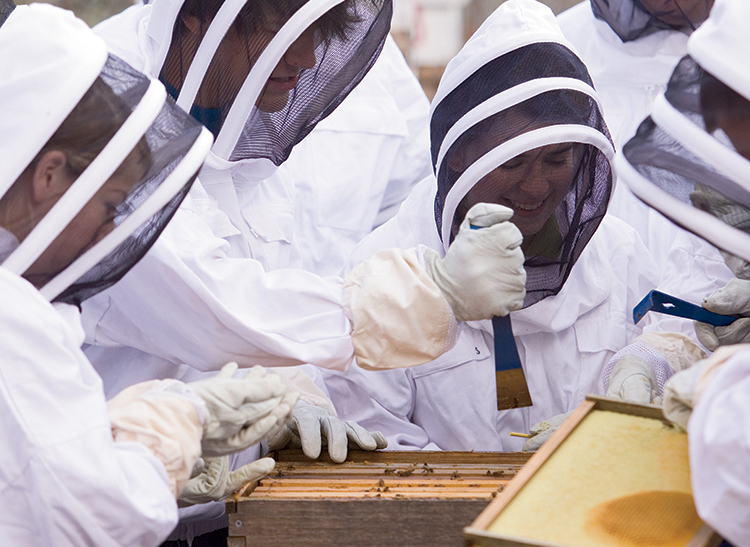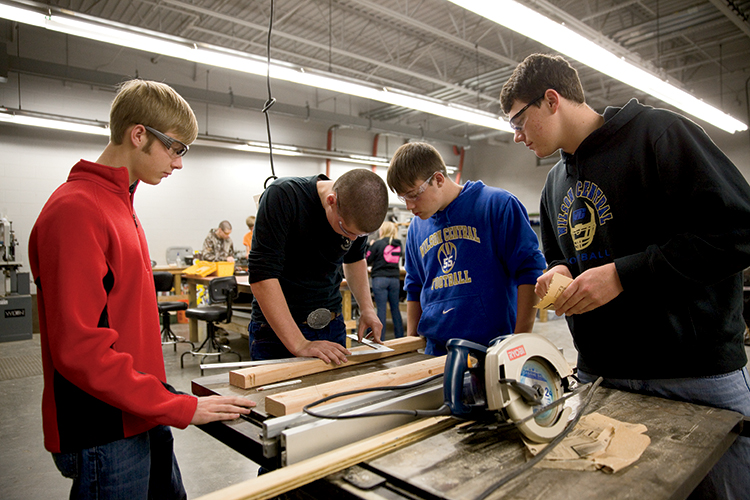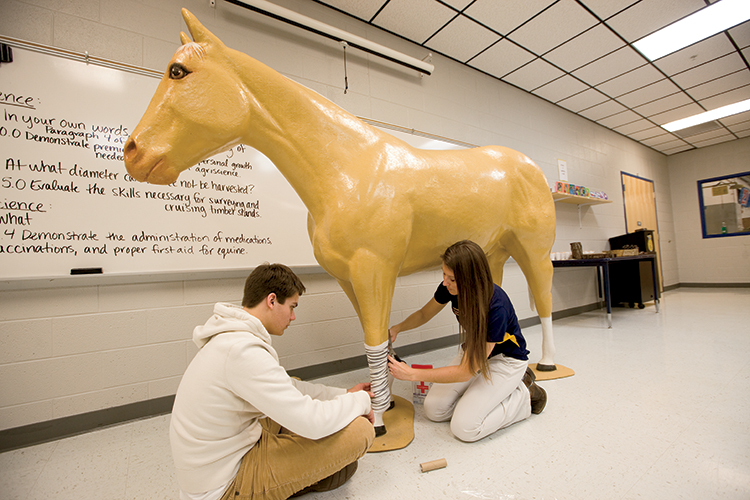Home > Tennessee > Tennessee Ag Education > An Educational Edge for Tennessee Agriculture Students
An Educational Edge for Tennessee Agriculture Students
In partnership with: Tennessee Department of Agriculture

Farming may be as old as the ages, but it requires the attention and education of today’s youth in order to continue thriving and evolving.
Tennessee’s students have multiple opportunities to learn about and become involved in agricultural fields that are providing new and exciting careers.
For instance, changes in high school core curriculum have served to expose more freshmen to agriscience as a recommended science credit, says Pam Walker, agriscience instructor at Wilson Central High School in Lebanon.
“This has opened doors to expose students to agriculture who we might never have had,” says Walker, who teaches honors agriscience and serves as the school’s FFA advisor. “We are getting really high quality students, and they’re seeing the opportunities available to them through FFA and other programs.”
She cites the example of three graduating seniors who entered her agriscience class as freshmen.

“They had no interest in agriculture when they started,” Walker says. “Now, all three are going to college to study agriculture and major in agribusiness, and they maintain 4.0 grade averages, with one ranked third in his class. If there is a perception that it’s only the ‘good ol’ boys’ taking agriculture classes, it is the wrong perception. These are high quality students taking leadership roles in our state and our nation through programs like FFA and 4-H.”
A primary focus of these extracurricular programs is leadership development and moving outside the scope of traditional agriculture, says Steve Sutton, director of 4-H youth development for the state.
“Our primary mission is to provide research based Extension educational experiences that will stimulate young people to gain knowledge, develop life skills and form positive attitudes to prepare them to become capable, responsible and compassionate adults,” Sutton says. “Our agriculture, family and consumer sciences, and related products are the vehicle we use to do this.”
With almost 200,000 students enrolled in the Tennessee 4-H program, the impact is great – and participation has expanded to include urban youths as well as traditional farm based students.

“Only 8.3 percent of our members actually live on a farm,” Sutton says. “With more and more of our membership coming from urban and rural non-farm areas, we have had to expand our project offerings to appeal to a wider range of interest. However, this is not to say we have forgotten our roots. We still have strong participation in and support of our agriculture related projects such as beef, sheep, dairy, swine, horticulture, wildlife and forestry.”
Tennessee FFA boasts 13,000 members covering 300 chapters, and students enjoy hands on opportunities to learn about the business of agriculture, as well as vegetable and animal production, wildlife, leadership and management practices. The annual spring convention draws 3,000 students who compete in areas designed to expand their agricultural horizons.
Wilson High School’s Walker sees the focus of agriculture education becoming more technical. “We certainly have a big focus on the Common Core, as we have to get our students graduated from high school with job and leadership skills,” she says. “But as the business and science of agriculture become more technical, our students have to know how to operate computers and do calibrations for farming equipment. As technology and practices change, our programs have to change with them. We don’t teach them a lot about raising livestock or row crops in the classroom; we’re teaching the science and technology of agriculture. I only see that continuing.”

Classroom experiences, coupled with real life exposure offered through FFA and 4-H, are creating more educated producers and consumers for the future.
“Young people are starting community and school gardens, donating the produce they’ve raised to local food banks, starting small home poultry flocks and selling their market animals locally after exhibiting them in our state show, and that is making them more prepared for the future,” Sutton says.
Walker agrees.
“Agriculture is important, and it is important that our students understand more about it,” she says. “As it becomes more popular, our students are becoming more ag-literate.”




